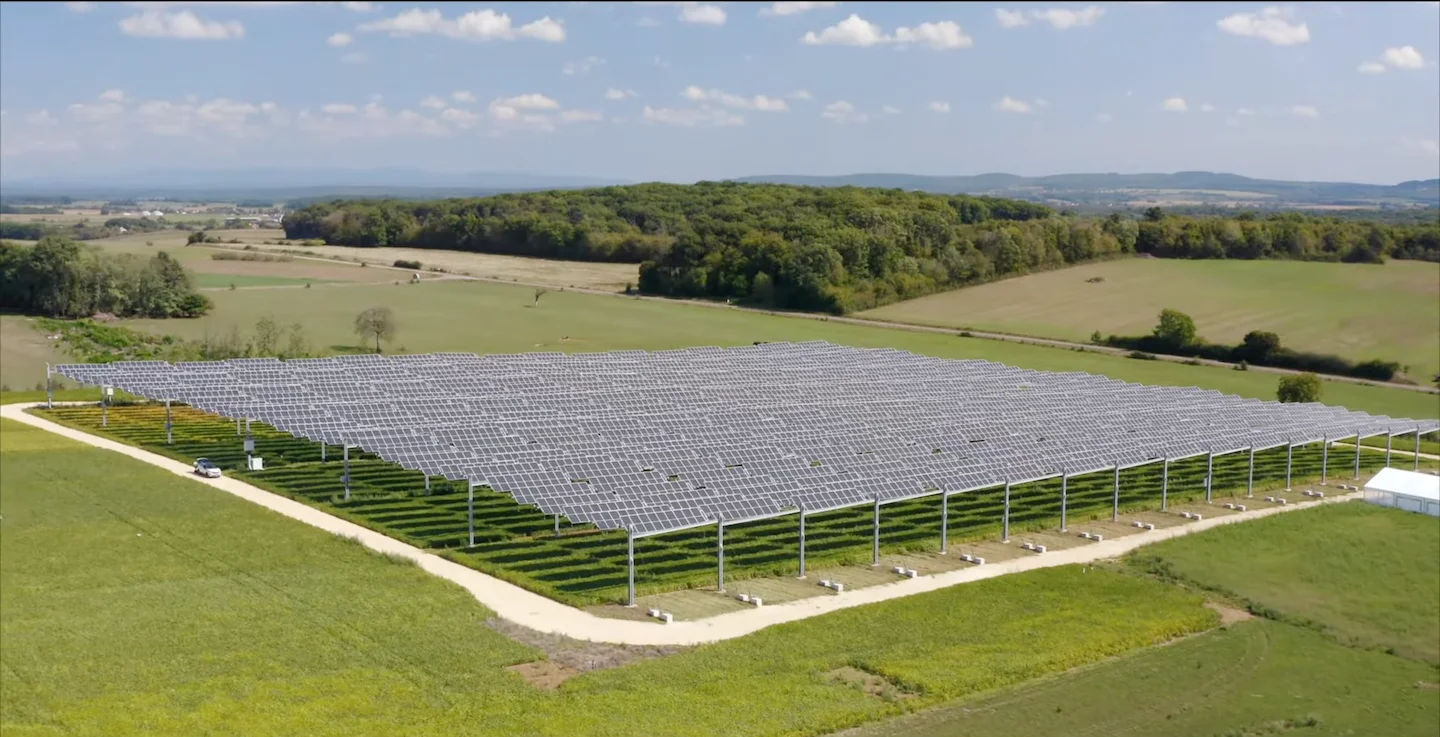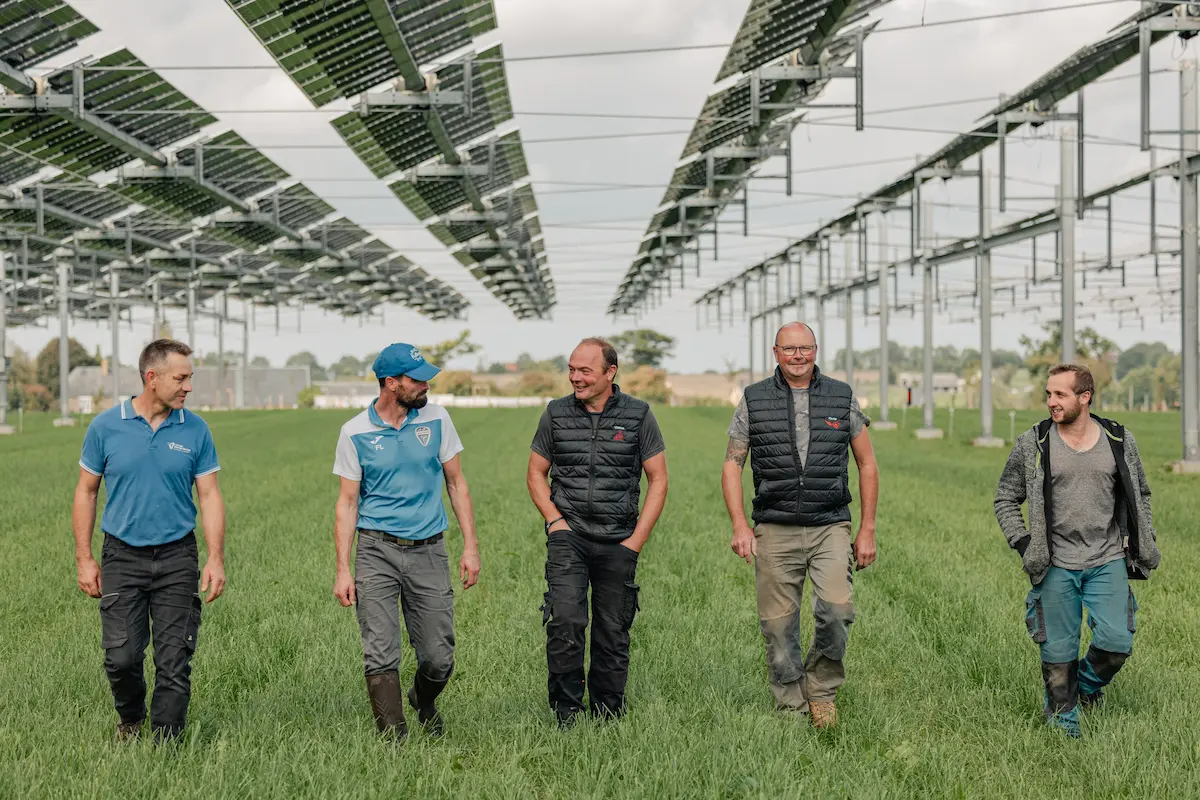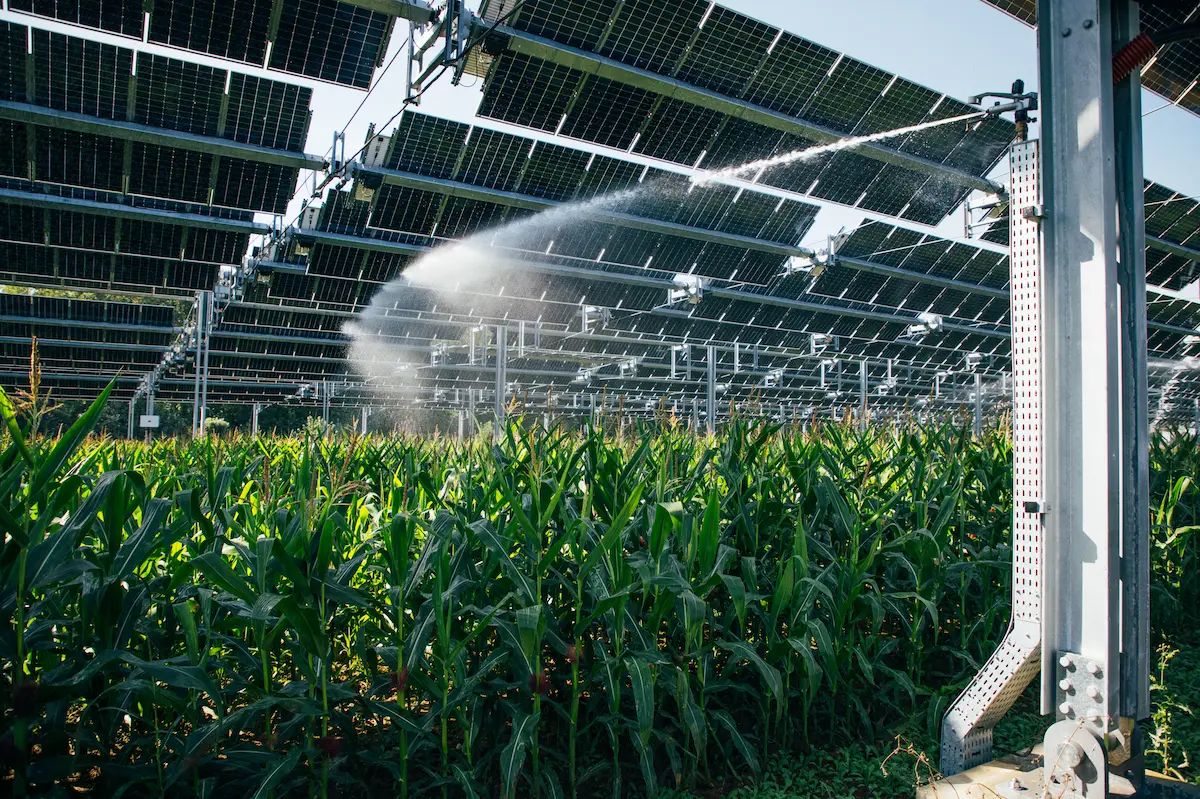Agricultural canopy
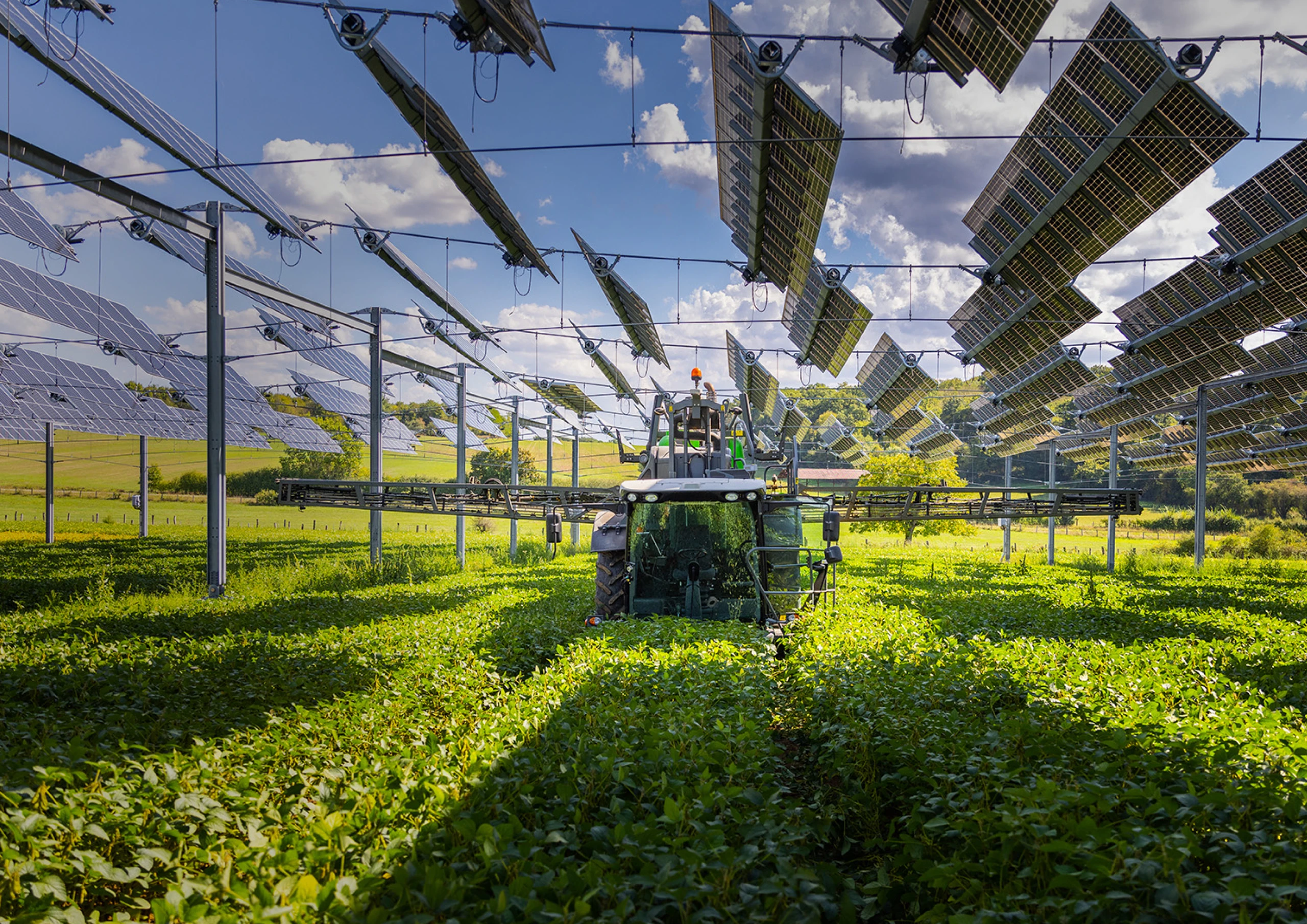
The key advantages of the system
System adapted to all major crops
Partial and rotating shading on the plot
Possibility of including an irrigation system
Low footprint for an optimized cultivated area
Crop protection against climatic hazards (drought, high temperatures, excess light, frost, hail)
Compatibility with agricultural machinery : 5m high, 27m wide
Dynamic panels with automatic orientation depending on weather conditions
Solution that guarantees a long-term income for the farmer and owner of the land
The agronomics benefits of partial and rotating shading
A built-in irrigation system
We have designed our agrivoltaic systems to meet another major challenge for the agricultural world, that of controlling water resources: our systems can feature a built-in irrigation system.
For irrigated land, our agricultural canopy can be equipped with an intelligent system that optimizes irrigation to save up to 30% in water use and costs. This device also saves labor time as it can be controlled remotely.
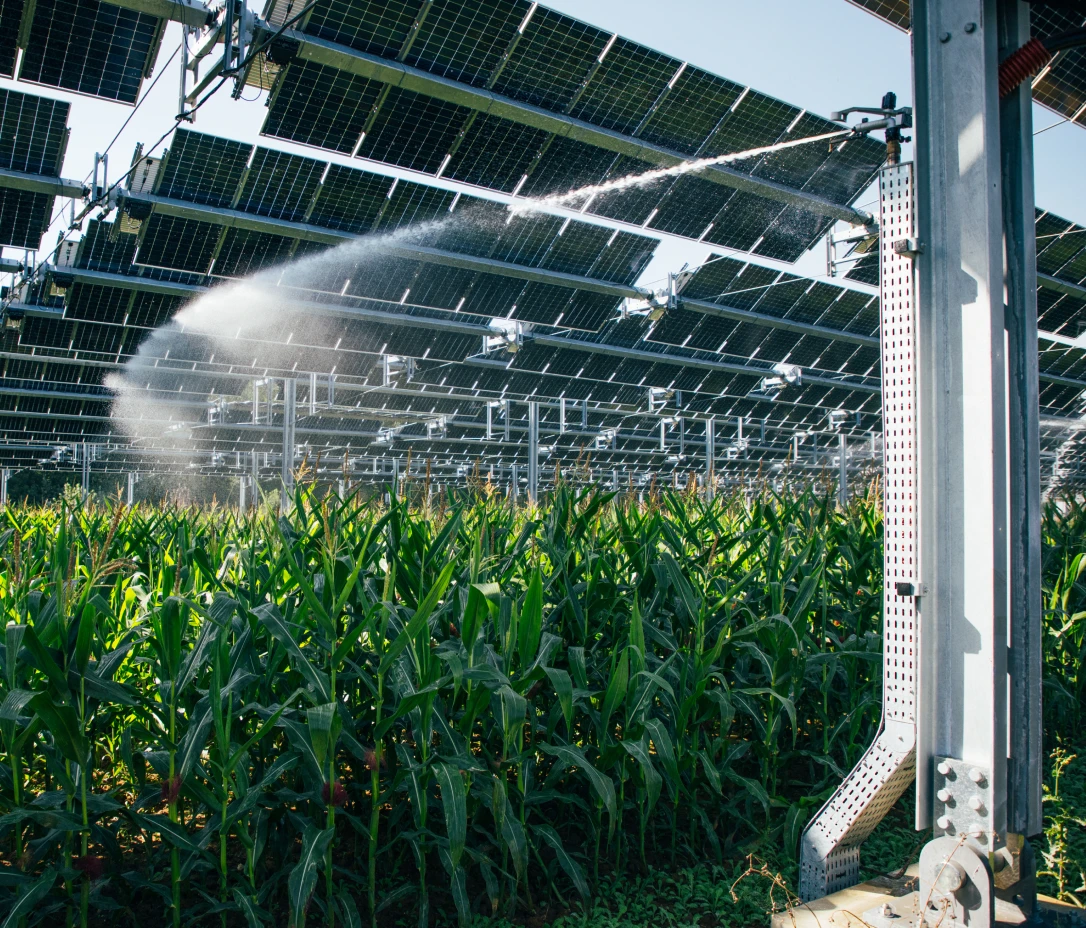


Results of our demonstration program
-1.4°C on average on the hottest days
+2°C on the coldest nights
Agrivoltaics: our farmers are the best people to talk about it
Let's talk about your project
Our agricultural partners
Why choose us
Expertise
Proximity
Growth
Presence
Commitment
Innovation
FAQs
The agricultural canopy, due to its height (lowest point at 5m) and the width of its rows of 27m, is designed to maintain the agricultural use of the land and ensure that the vast majority of agricultural machinery on the market has room to pass underneath. There is no impact in terms of agricultural interventions or equipment.
The agricultural canopy covers only 0.5% of the land area, which minimizes the loss of usable land.
We plan preventive maintenance operations between two crops, in consultation with the farmer. If part of the crop is impacted by a necessary intervention during cultivation, then we will compensate the farmer accordingly.
The agricultural canopy is compatible with the majority of field crops. Do not hesitate to contact our teams to find out more.
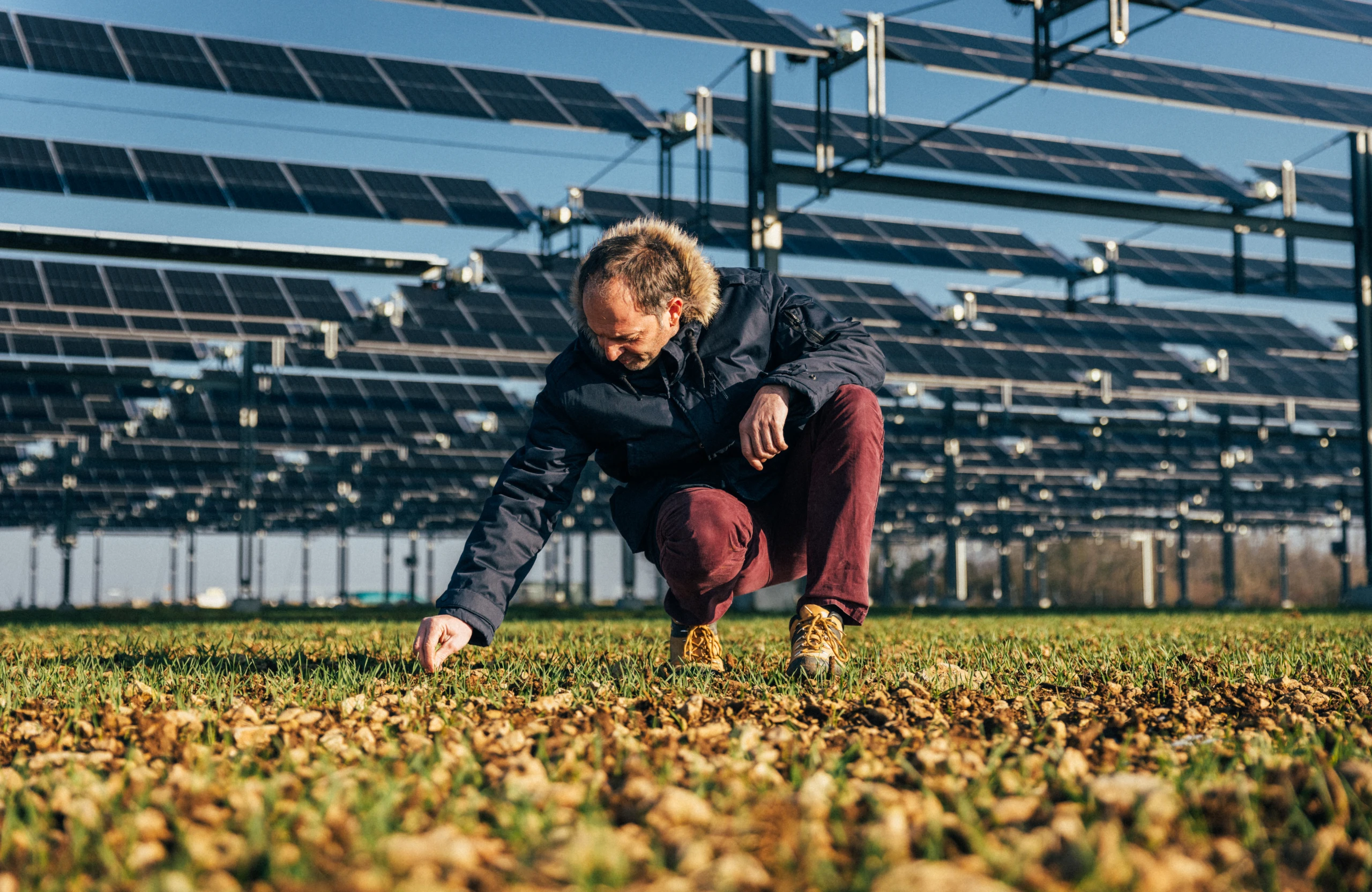
.webp)
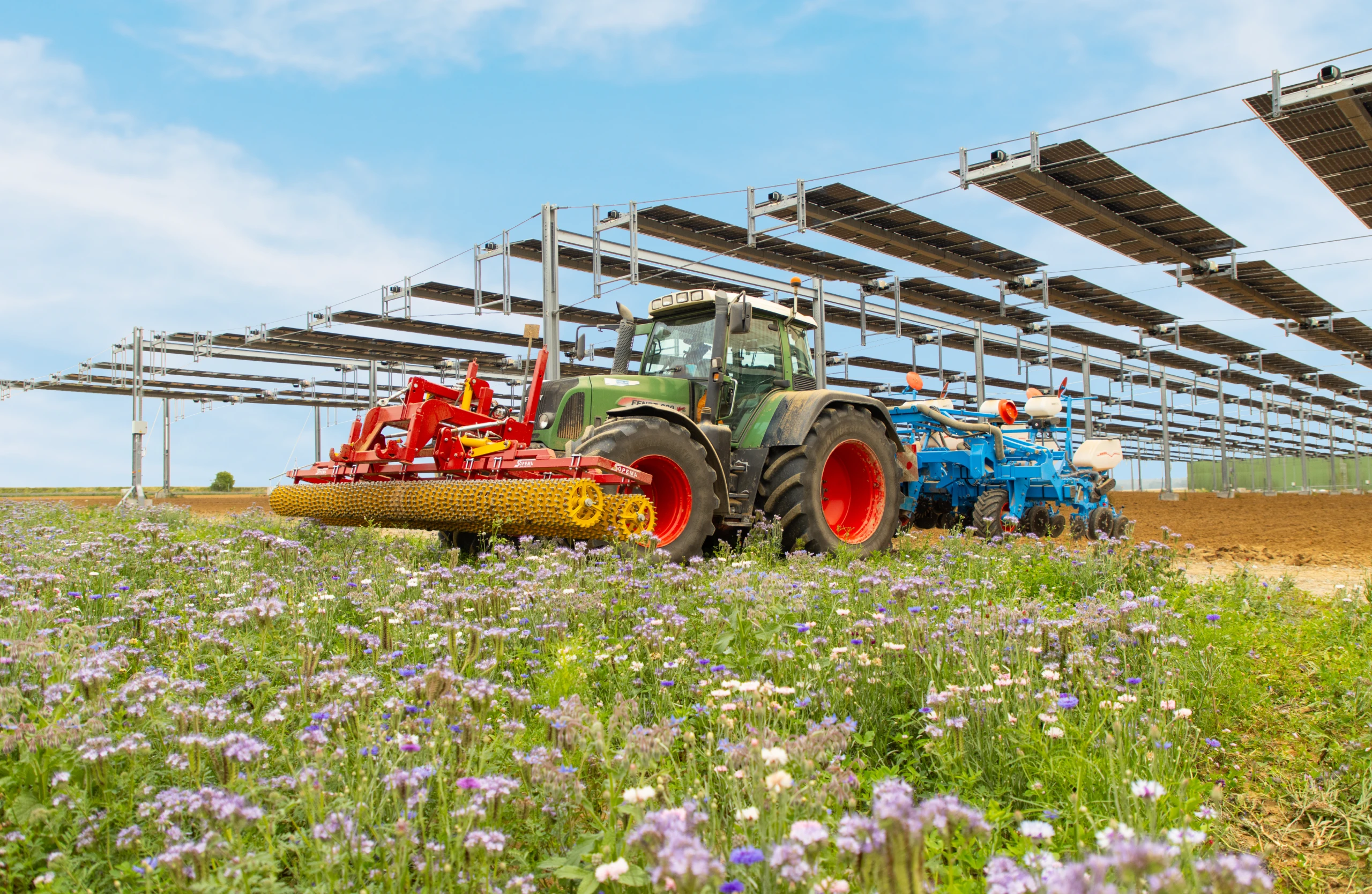
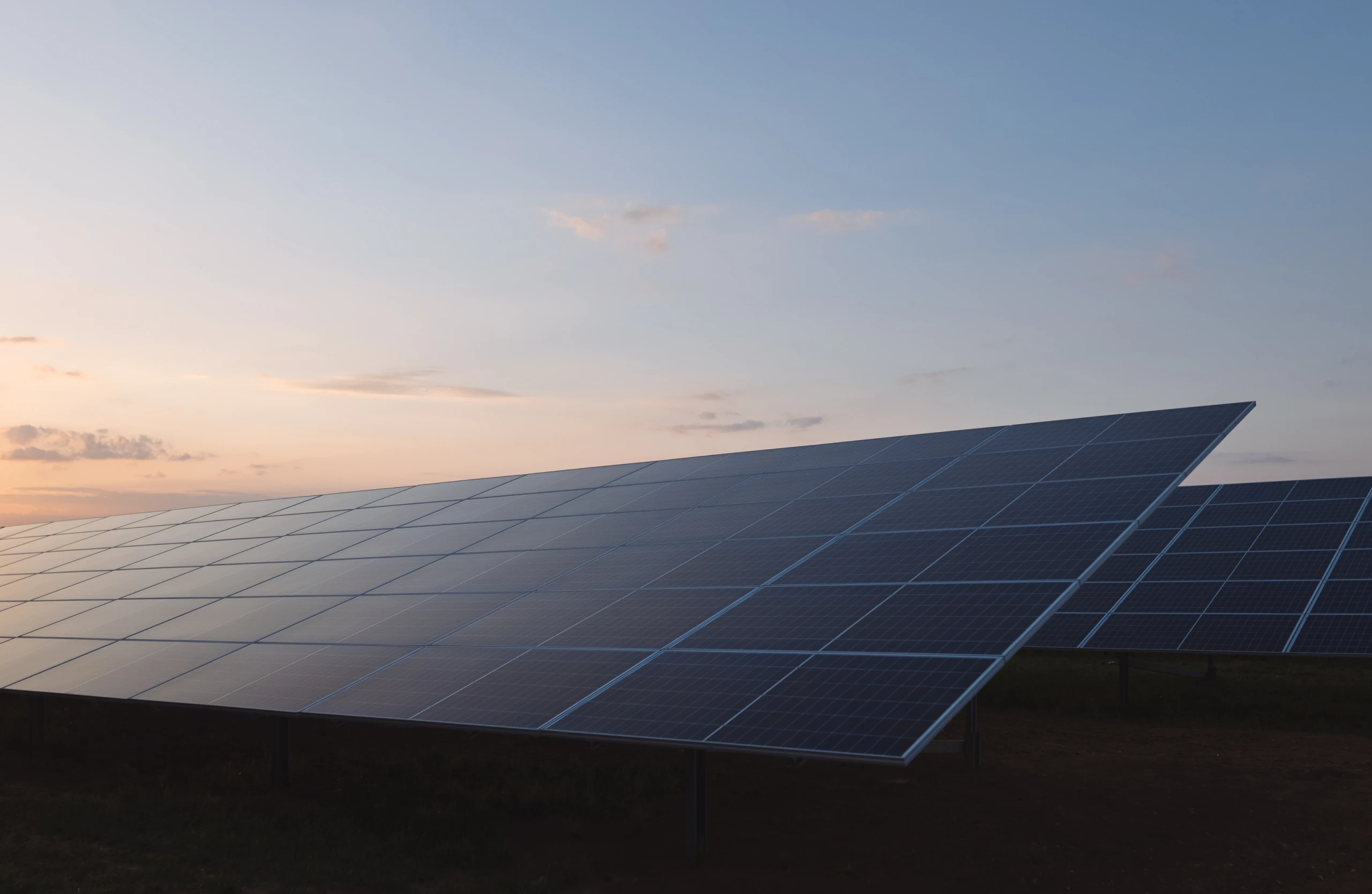
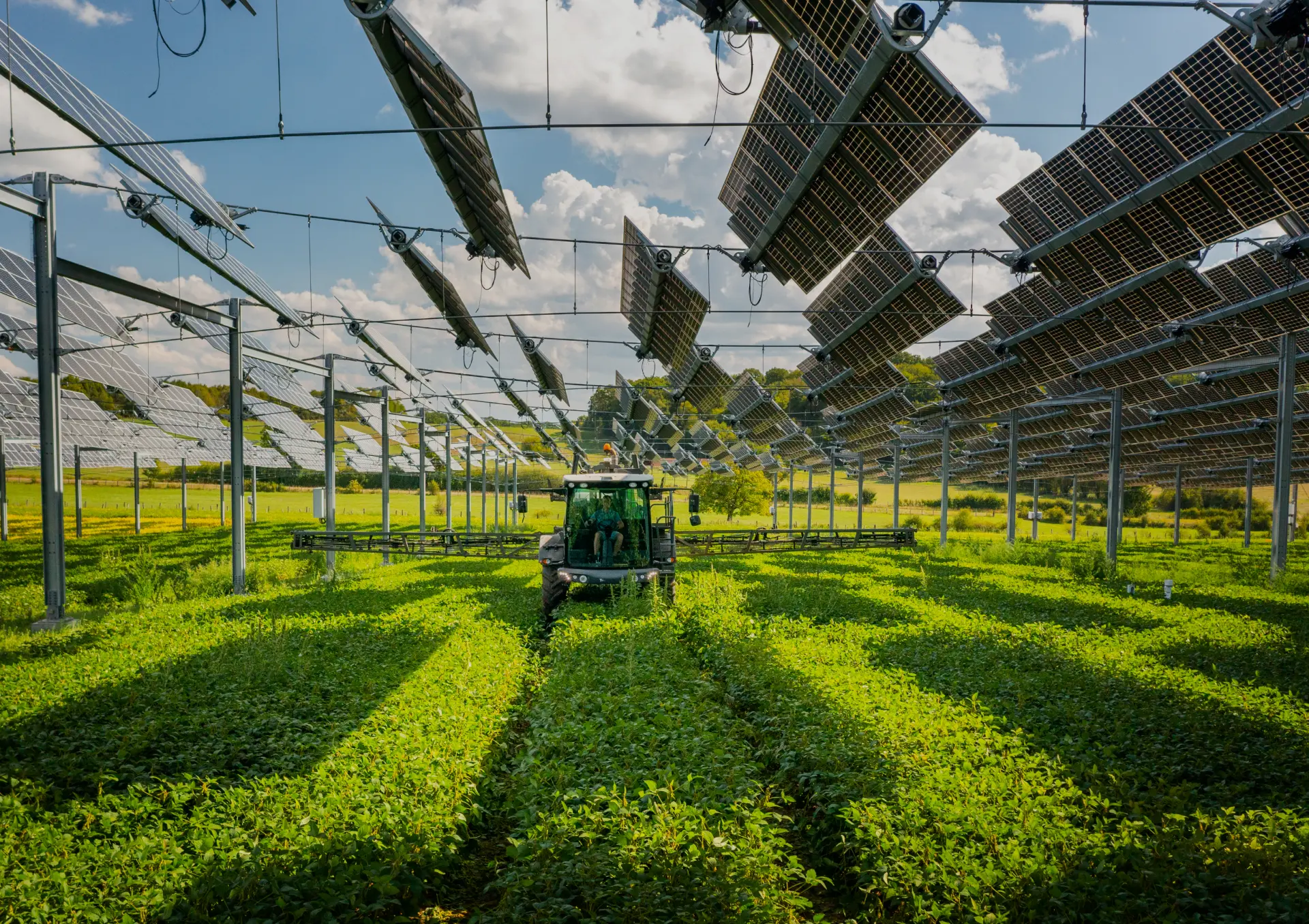
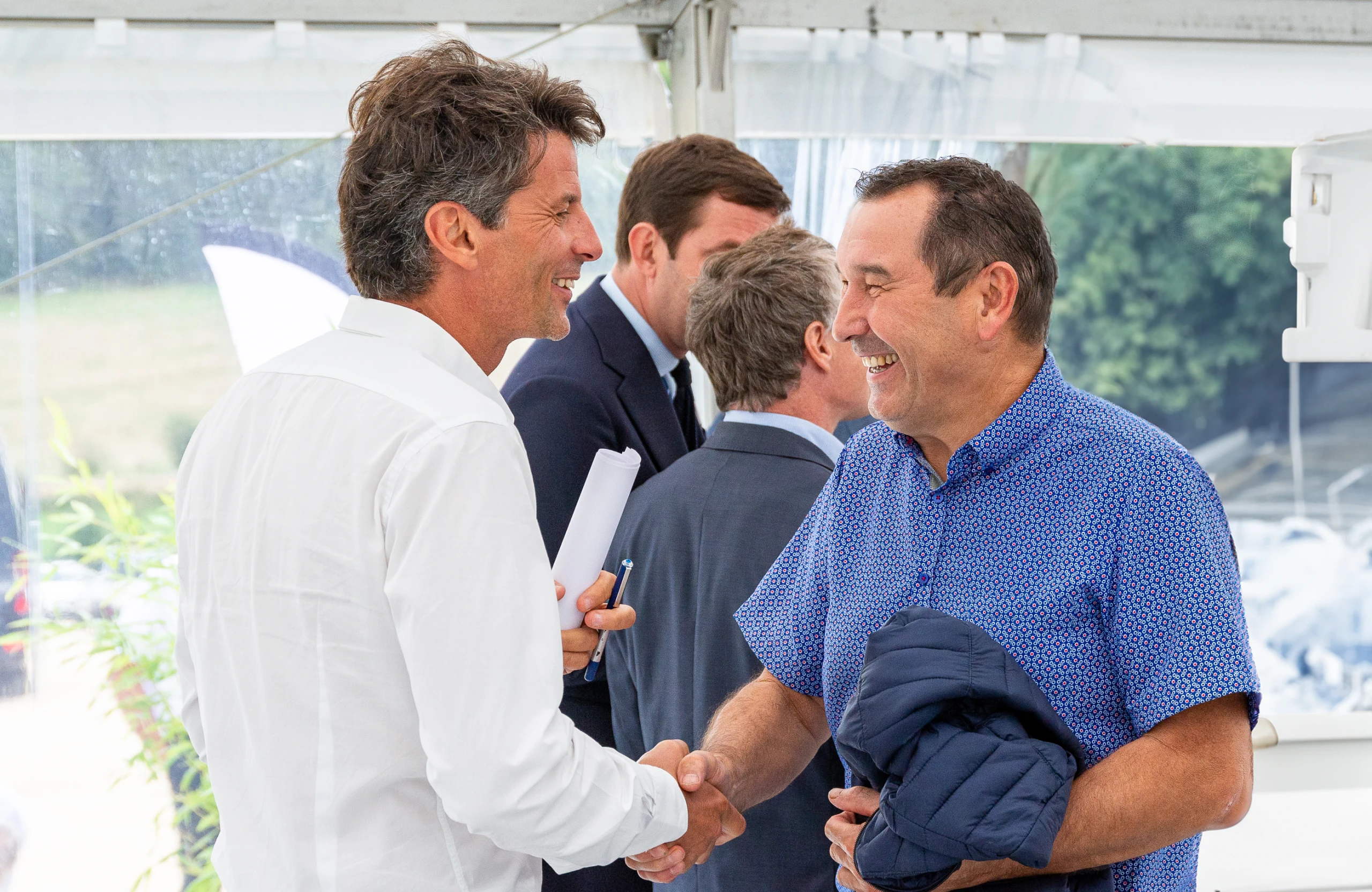


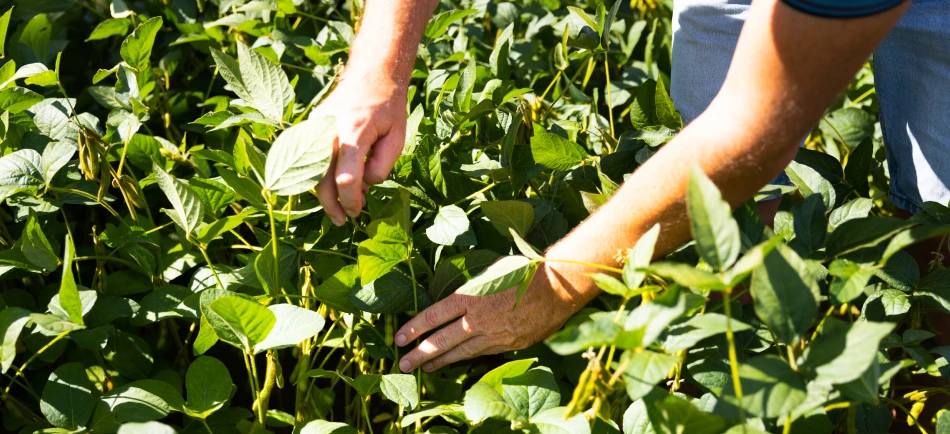
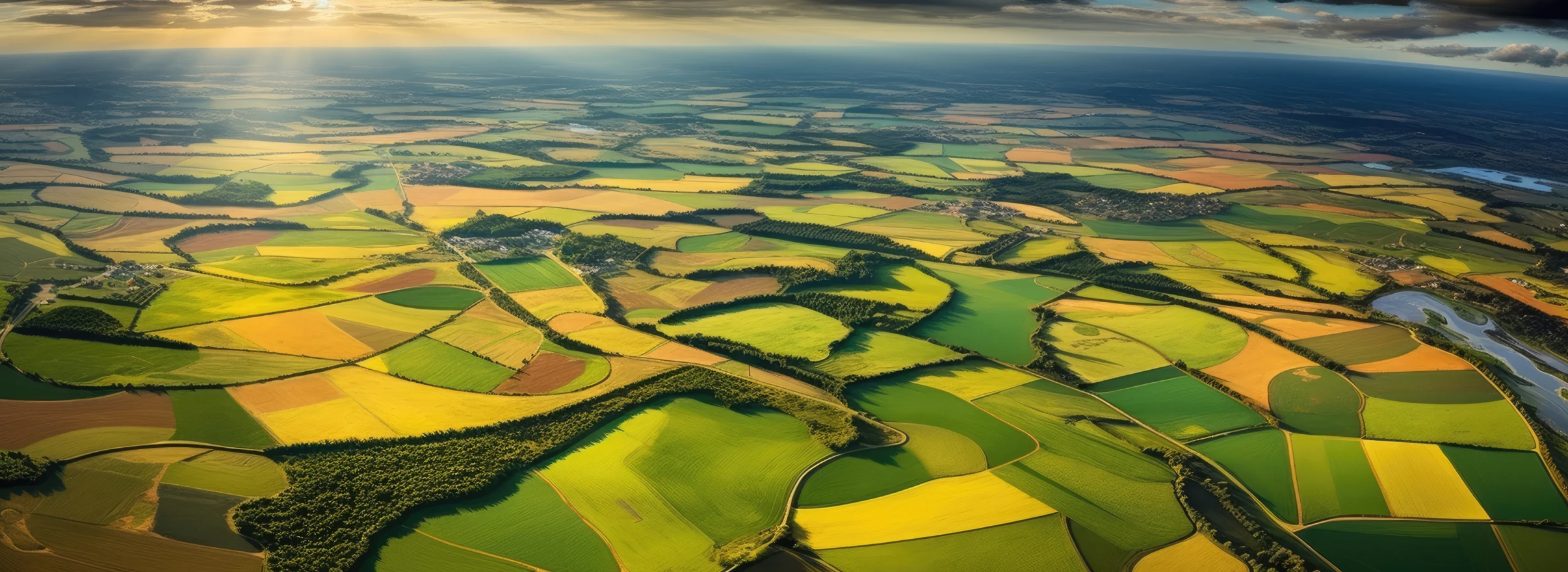

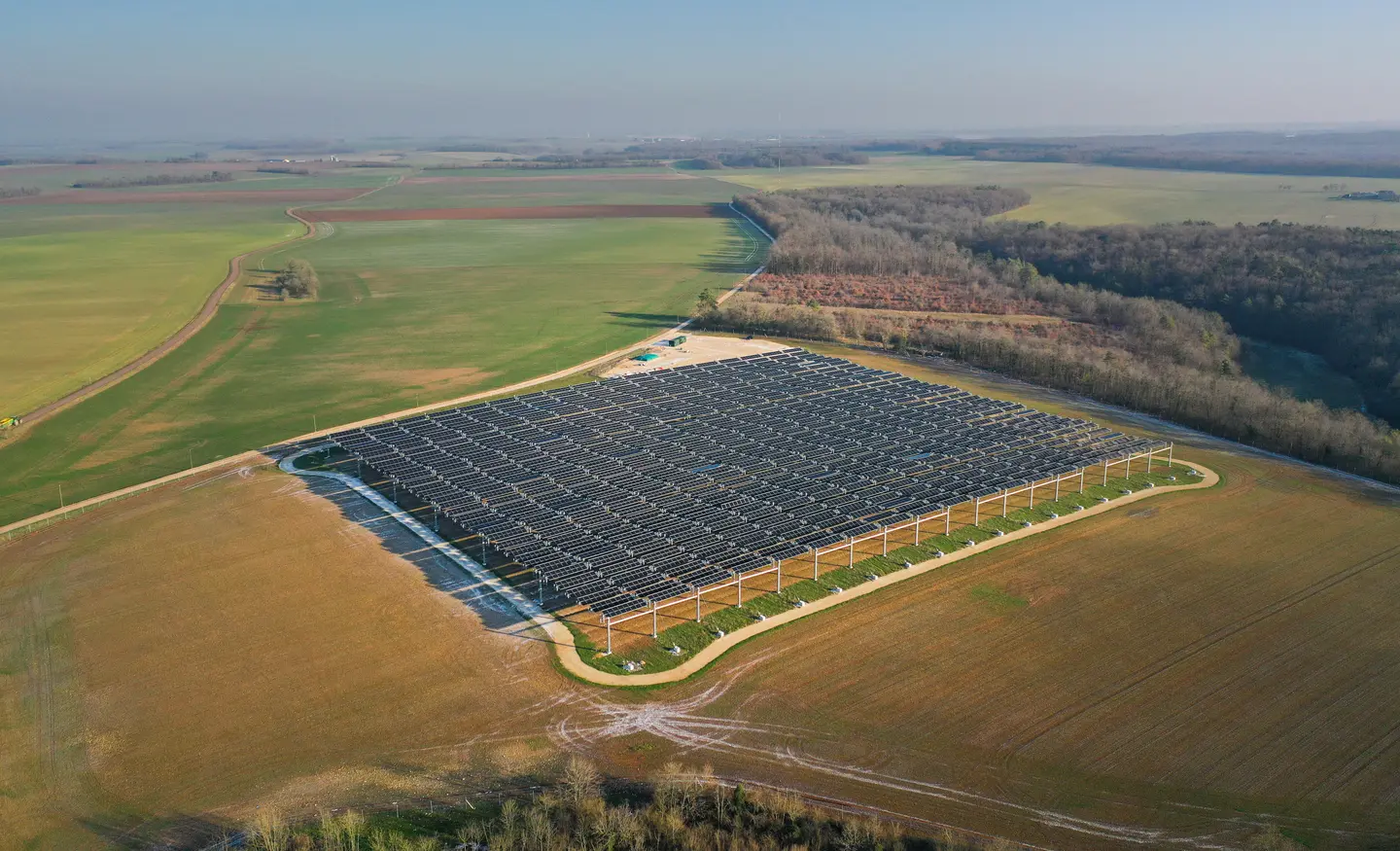
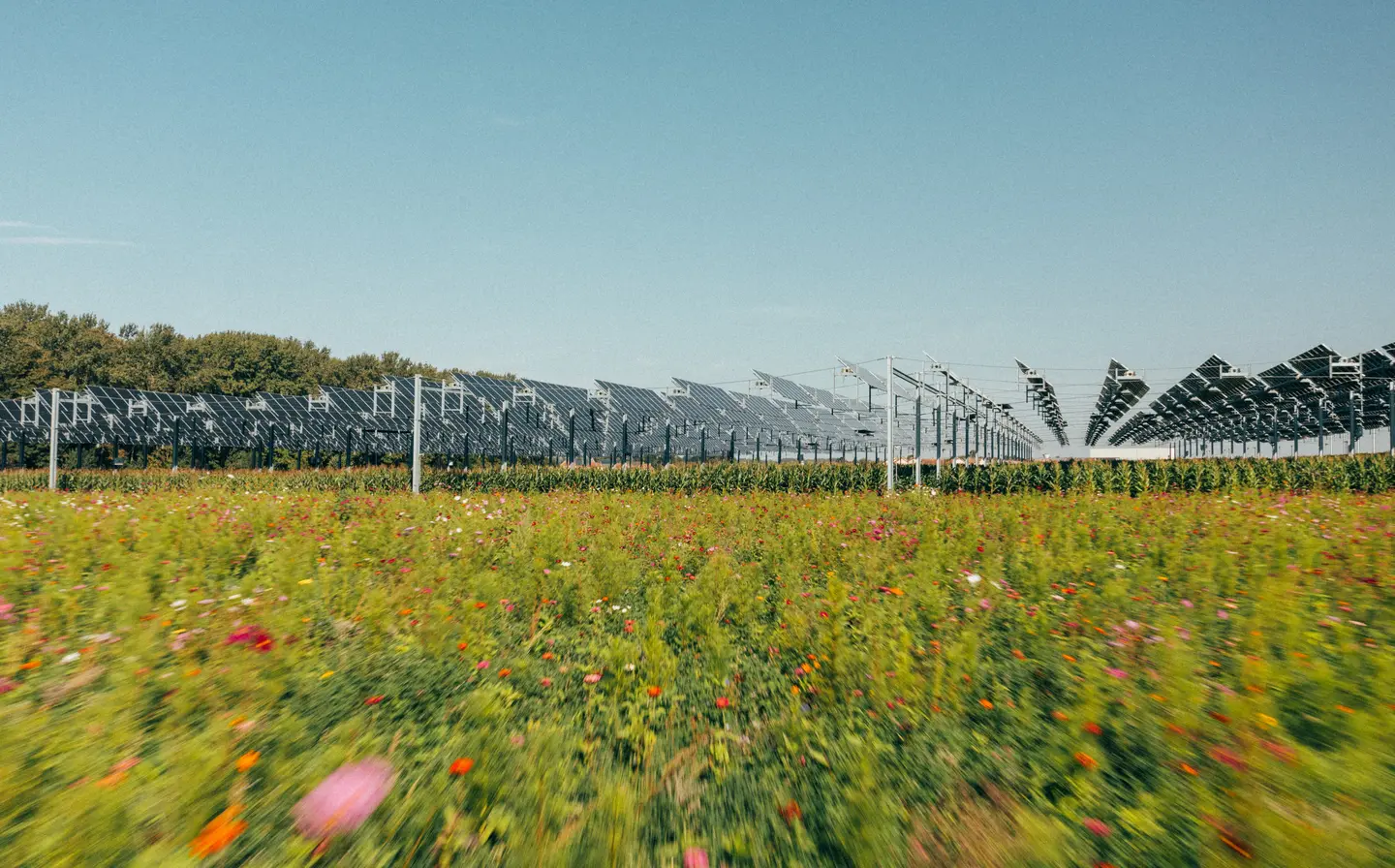
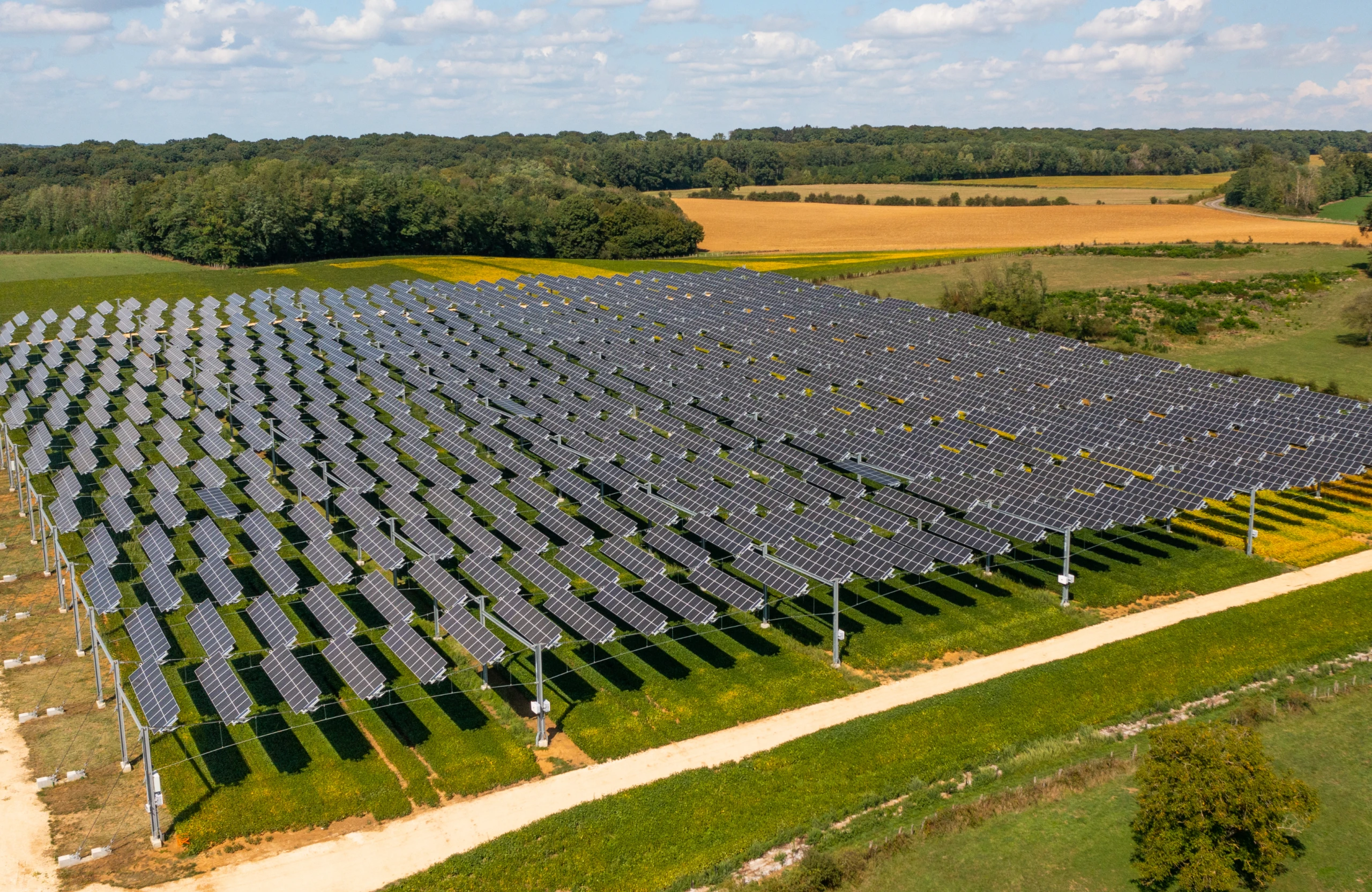
.webp)
.webp)
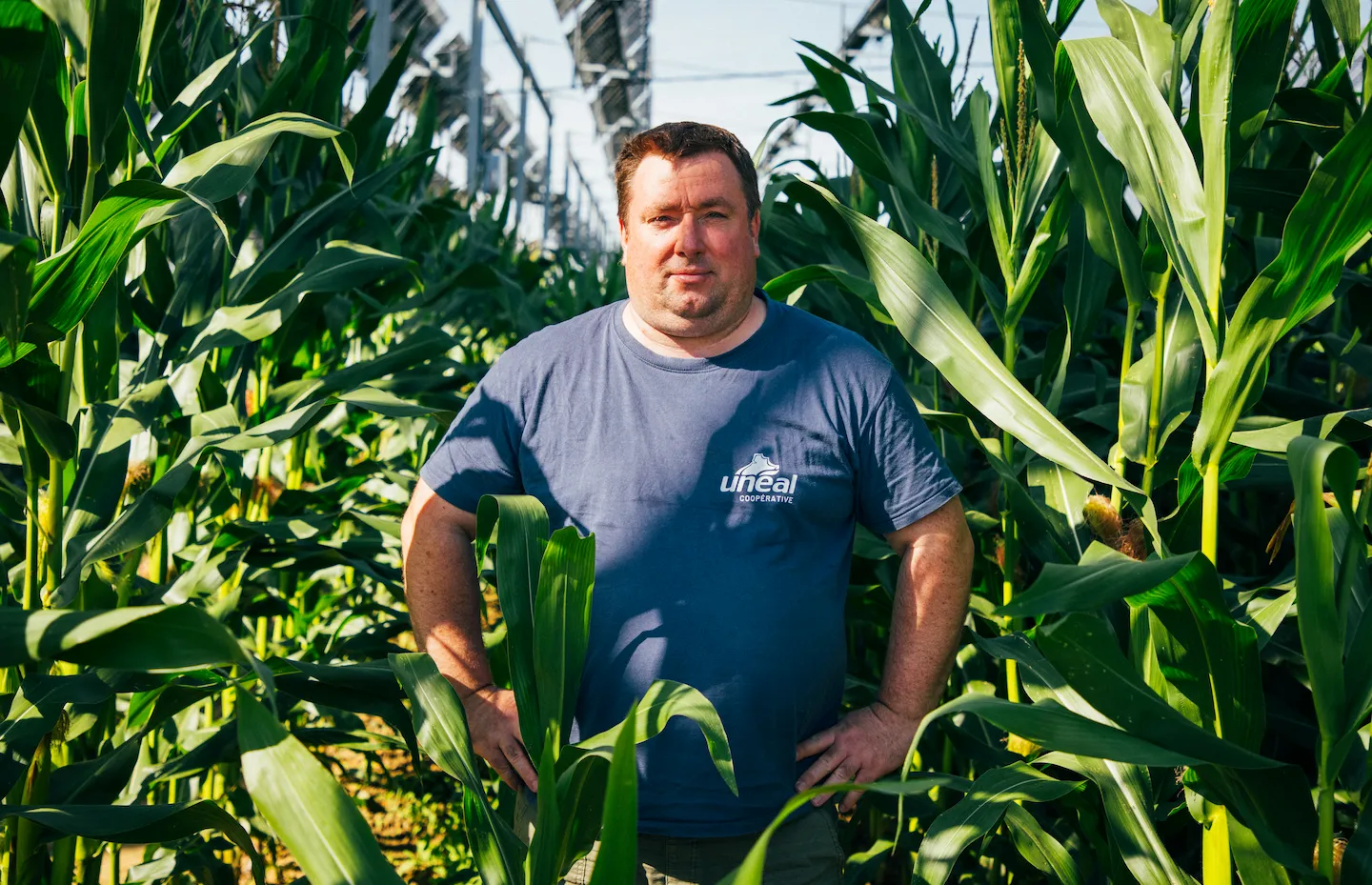
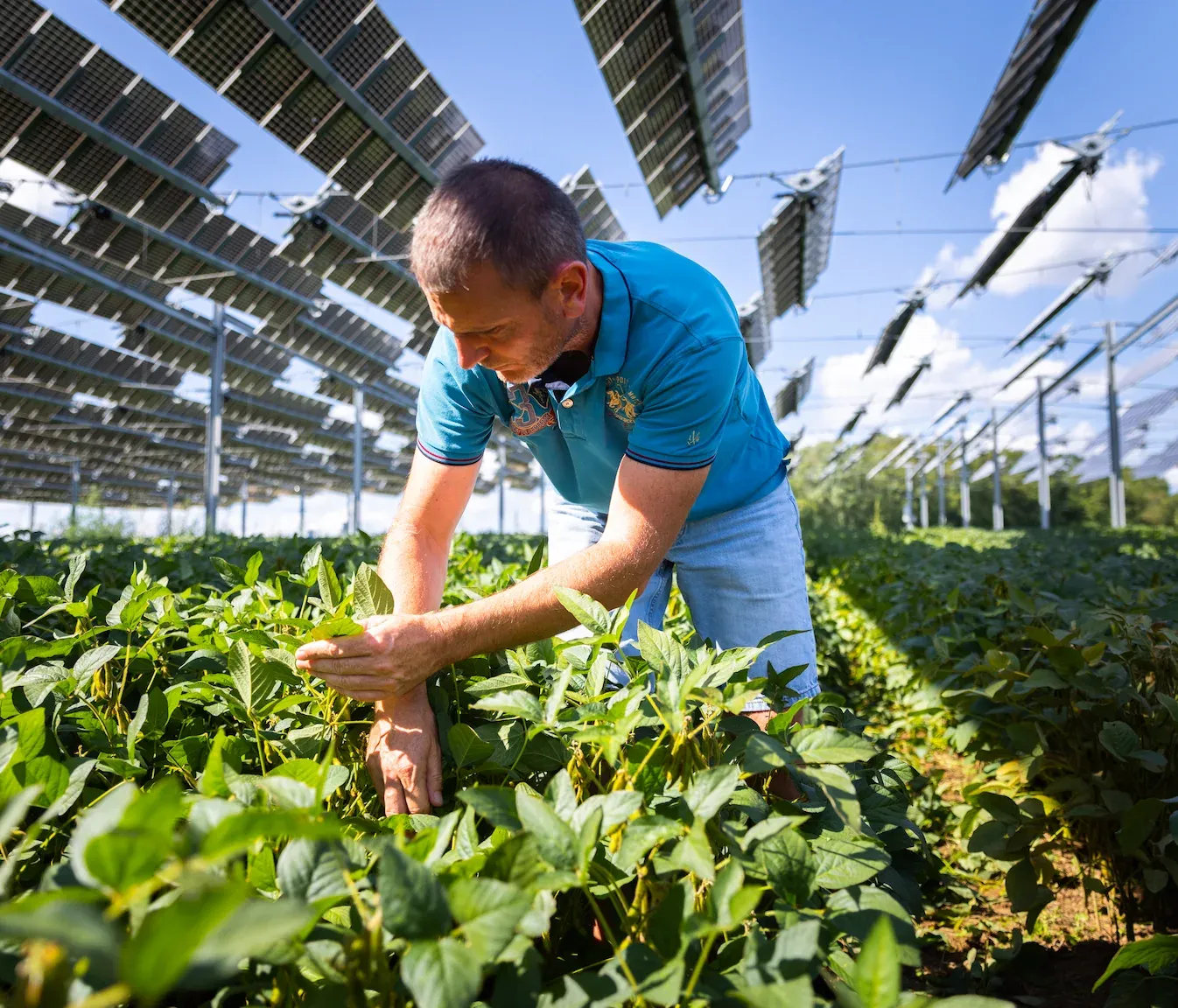





.webp)


